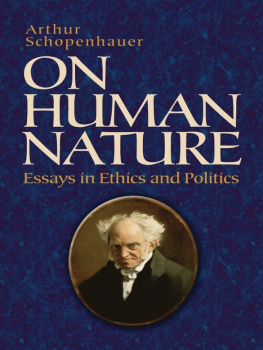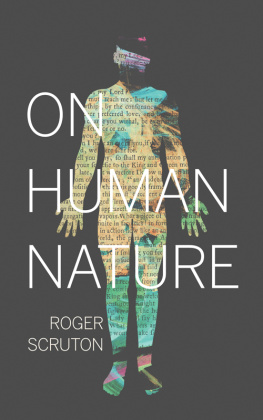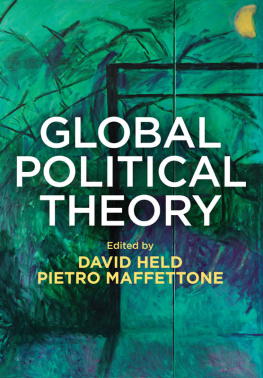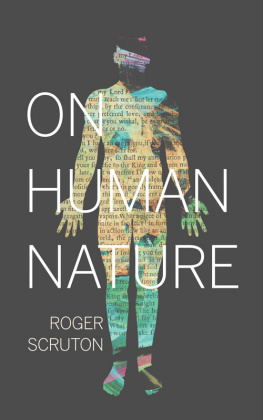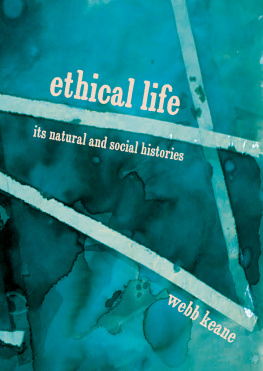
Nature and Ethics Across Geographical, Rhetorical and Human Borders
How we dispose of our rubbish, choose the foods we buy, enjoy art, relate to our families and think about ourselves are just a few of the ways that ideas about nature shape our everyday ethical decisions. Nature and natural facts have long been used to make sense of why we act a certain way. Nature is a concept with great power: when we describe something as natural or unnatural, it has a moral force and political consequences. We see this in moral panics about genetically modified foods, the spread of government-enforced waste recycling schemes, concerns about assisted reproductive technologies. Our ideas about what is natural shape our ethical thinking, in terms of how people live (or want to live) their lives, but also in guiding our sense of morality, justice and truth.
The idea of naturalness is essential to grasping Anglo-American cultures. Throughout history and in different places, nature has had different forms, meanings and moral valences. It is a knowable fact, but at the same time almost a divine principle that is ultimately unfathomable. Yet with the rise of new technologies, there is increasing uncertainty about what we claim to be natural, who we are, how we are related to each other and how we should live.
This book examines how ideas about nature and ethics overlap and separate across cultural, species, geographic and moral boundaries. It compares the varied ways in which nature and ideas of naturalness pervade all aspects of peoples lives, from family relationships, to the production and consumption of food, to ideas about scientific truth. In a world of increasing uncertainty, nature remains a powerful concept: the ultimate reference point, invested with profound moral authority to guide our ethical behaviour.
This book was originally published as a special issue of Ethnos: Journal of Anthropology.
Katharine Dow is a Senior Research Associate in the Reproductive Sociology Research Group at the University of Cambridge, UK. Her main research interest is the ethical dilemmas and questions provoked by reproduction and assisted reproductive technologies.
Victoria Boydell is an Affiliated Scholar in the Reproductive Sociology Research Group at the University of Cambridge, UK. Her main research interest is social and cultural dynamics around contraceptive technologies.
Nature and Ethics Across Geographical, Rhetorical and Human Borders
Edited by
Katharine Dow and Victoria Boydell
First published 2018
by Routledge
2 Park Square, Milton Park, Abingdon, Oxon, OX14 4RN, UK
and by Routledge
711 Third Avenue, New York, NY 10017, USA
Routledge is an imprint of the Taylor & Francis Group, an informa business
2018 Taylor & Francis
All rights reserved. No part of this book may be reprinted or reproduced or utilised in any form or by any electronic, mechanical, or other means, now known or hereafter invented, including photocopying and recording, or in any information storage or retrieval system, without permission in writing from the publishers.
Trademark notice: Product or corporate names may be trademarks or registered trademarks, and are used only for identification and explanation without intent to infringe.
British Library Cataloguing in Publication Data
A catalogue record for this book is available from the British Library
ISBN 13: 978-1-138-57190-7
Typeset in Adobe Caslon Pro
by RefineCatch Limited, Bungay, Suffolk
Publishers Note
The publisher accepts responsibility for any inconsistencies that may have arisen during the conversion of this book from journal articles to book chapters, namely the possible inclusion of journal terminology.
Disclaimer
Every effort has been made to contact copyright holders for their permission to reprint material in this book. The publishers would be grateful to hear from any copyright holder who is not here acknowledged and will undertake to rectify any errors or omissions in future editions of this book.
Contents
Citation Information
The chapters in this book were originally published in Ethnos: Journal of Anthropology, volume 82, issue 1 (February 2017). When citing this material, please use the original page numbering for each article, as follows:
Introduction
Nature and Ethics Across Geographical, Rhetorical and Human Borders
Katharine Dow & Victoria Boydell
Ethnos: Journal of Anthropology, volume 82, issue 1 (February 2017), pp. 118
Chapter 1
Natural Breastfeeding in Comparative Perspective: Feminism, Morality, and Adaptive Accountability
Charlotte Faircloth
Ethnos: Journal of Anthropology, volume 82, issue 1 (February 2017), pp. 1943
Chapter 2
The Ethics of Patenting and Genetically Engineering the Relative Hloa
Mascha Gugganig
Ethnos: Journal of Anthropology, volume 82, issue 1 (February 2017), pp. 4467
Chapter 3
Snared: Ethics and Nature in Animal Protection
Adam Reed
Ethnos: Journal of Anthropology, volume 82, issue 1 (February 2017), pp. 6885
Chapter 4
A Nine-Month Head-Start: The Maternal Bond and Surrogacy
Katharine Dow
Ethnos: Journal of Anthropology, volume 82, issue 1 (February 2017), pp. 86104
Chapter 5
A Response to the Issues Raised in the Special Edition of Ethnos
Alana Jelinek
Ethnos: Journal of Anthropology, volume 82, issue 1 (February 2017), pp. 105112
For any permission-related enquiries please visit: http://www.tandfonline.com/page/help/permissions
Notes on Contributors
Victoria Boydell is an Affiliated Scholar in the Reproductive Sociology Research Group at the University of Cambridge, UK. Her main research interest is social and cultural dynamics around contraceptive technologies.
Katharine Dow is a Senior Research Associate in the Reproductive Sociology Research Group at the University of Cambridge, UK. Her main research interest is the ethical dilemmas and questions provoked by reproduction and assisted reproductive technologies.
Charlotte Faircloth is a Lecturer at the UCL Institute of Education, London, UK.
Mascha Gugganig is a Postdoctoral Researcher at the Munich Center for Technology in Society, Technical University of Munich, Germany.
Alana Jelinek is a Research Fellow in the School of Creative Arts, University of Hertfordshire, UK.
Adam Reed is a Senior Lecturer at the Department of Social Anthropology, University of St Andrews, UK.
Introduction: Nature and Ethics Across Geographical, Rhetorical and Human Borders
Katharine Dow & Victoria Boydell
The natureculture dichotomy is perhaps one of the most critical legacies of anthropological thought. Nature has long occupied a position of vital importance in the way in which people are understood to imagine their own and others worlds. Given this, it is not surprising that nature has been employed by anthropologists as an analytical heuristic and, historically, as an ultimate reference point from which to make sense of human behaviour. Nature is, also, a concept with great power and rhetorical weight for the people who anthropologists encounter in the field, not least in the Western world. Diverse examples from moral panics about genetically modified foods, to the spread of government-enforced waste recycling schemes, to concerns about reproductive tourism show that claims about nature are never politically, emotionally or morally neutral. For many, notions of naturalness structure ethical choices, both in terms of how people live (or want to live) their lives and in guiding our sense of right and wrong, justice and truth.



